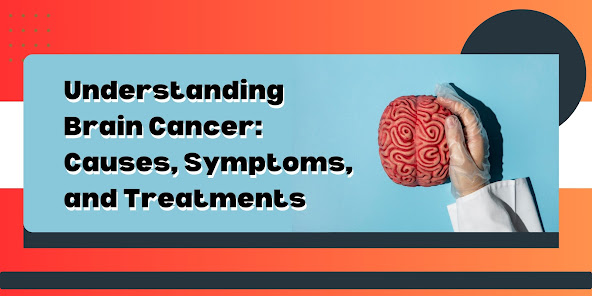Understanding Brain Cancer: Causes, Symptoms, and Treatments
What Is Brain Cancer?
Brain cancer, also known as a brain tumor, refers to the abnormal growth of cells in the brain. These cells can form a mass or a lump, disrupting the normal brain functions. Brain cancer can be primary, originating in the brain, or secondary, spreading from other parts of the body.
Causes of Brain Cancer
There is still much to learn about the causes of brain cancer. However, certain risk factors have been identified, including exposure to radiation, family history of brain tumors, and genetic disorders such as neurofibromatosis and Li-Fraumeni syndrome. Research also suggests a possible link between certain environmental factors and the development of brain cancer.
Symptoms of Brain Cancer
The symptoms of brain cancer might vary based on the tumor's location and size. Common symptoms include persistent headaches, seizures, difficulty with balance and coordination, changes in personality or behavior, and blurred vision. It is important to note that these symptoms can also be caused by conditions other than brain cancer, so it is essential to consult a medical professional for a proper diagnosis.
Diagnosing Brain Cancer
Brain cancer is often diagnosed using a combination of imaging tests, such as MRI or CT scans, and a biopsy to study tumor cells. These tests help determine the location, size, and type of the tumor, which is crucial for developing an effective treatment plan.
Treatments for Brain Cancer
Treatment choices for brain cancer are determined by criteria such as the type of tumor, its location, and the patient's general condition. Common treatment approaches include surgery to remove the tumor, radiation therapy, and chemotherapy. To effectively attack malignant cells, a combination of these treatments may be indicated in some circumstances.
Living with Brain Cancer
Living with brain cancer can present significant challenges for patients and their families. It is essential to have a strong support system in place and to work closely with healthcare professionals to manage symptoms and navigate treatment options. Additionally, participating in clinical trials and staying informed about the latest advancements in brain cancer research can provide hope for improved outcomes.
In conclusion, brain cancer is a complex and often challenging condition that requires a comprehensive approach to diagnosis and Brain Cancer Treatment in Coimbatore. Individuals impacted with brain cancer can make informed decisions and work toward a better quality of life by learning the causes, recognizing the symptoms, and researching available therapies.




Comments
Post a Comment